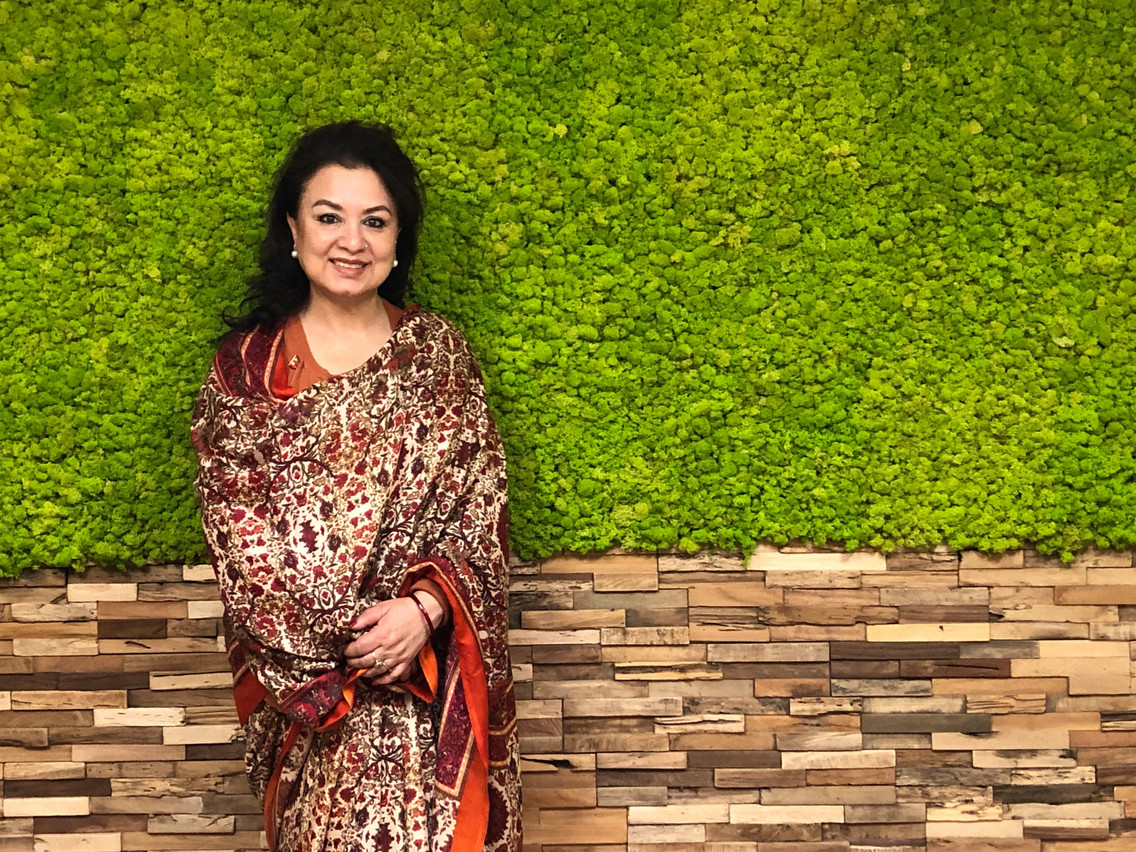Rana is visiting Luxembourg this week to give a lecture on women’s rights in Nepal as well as meeting with government officials and visiting local schools. She is a member of the UN’s Committee on the Elimination of Discrimination Against Women (CEPAW) and chair of the Global Network of Women Peacebuilders. But her career in activism began in her home country of Nepal, where she helped open the country’s first women’s shelter in the 1990s.
“It was a huge struggle, because no one thought that domestic violence was a problem that needs to be addressed,” said Rana. The former journalist worked on compiling voices for the UN’s first Human Development Report, published in 1990. “Every time I put a mic in front of a woman, there would be four men saying she doesn’t know anything, she can’t speak, she’s too shy. That really troubled me.”
Rana eventually found the women fetching water in the early morning from a communal tap. They spoke to Rana of domestic violence, physical battering, sexual assault within their marriage and families, alcohol and drug abuse. “It’s not that this was the first time I had heard of it. But to hear it from women who had been suffering was a huge eye opener for me.”
The violence continues, not just in Nepal but all over the world.
Together with a group of fellow women’s rights activists, Rana founded Saathi, a non-governmental organisation to address violence and discrimination faced by women in Nepal.
“We tried to raise awareness, but we realised that raising awareness alone doesn’t help.” Women who wanted to leave abusive relationships had no support. “We have the kind of society which teaches you, as a woman, to be silent, tolerant and adapt to your husband’s home. It’s okay if your husband beats you occasionally.”
Rana and women’s rights activists in Nepal faced accusations that they were bringing in Western ideas. “We witnessed violence right in front of our eyes, within our families. That cannot be called a Western idea.”
Saathi opened its first women’s shelter in 1995 but every step led to new needs. There was no law on domestic violence at the time. It took the women’s rights organisers 14 years to get legislation adopted in parliament in 2009. “The violence continues, not just in Nepal but all over the world,” Rana said. “The positive thing is that domestic violence is no longer a taboo. It is on the national agenda.”
It is also on the global agenda. “My mantra is taking local experiences of what makes a difference in women’s lives on the ground, the actual lived experiences, to the global arena where global policies are formulated,” said Rana, “and then bringing back the globally committed mandate to the local level.”
“Incentive to work harder”
The grand duchy is helping make a difference. “Luxembourg has been a frontrunner on gender equality globally,” Rana said. Around 85% of its development assistance benefit gender equality, the country led a UN Security Council resolution on children in armed conflict in 2014, it has a feminist foreign policy agenda and an action plan on women, peace and security.
“We have strong, rigid norms and values,” Rana said about her native Nepal. “When your assistance is combined with your clear strategy of ending discrimination, that message goes across to countries like us, which gives us the incentive to work harder.”
Luxembourg in January will begin a three-year mandate on the UN Human Rights Council and will overlap with Nepal, which is a member until 2023. “I think Luxembourg and Nepal will find ways within the Human Rights Council to work together,” Rana said. The grand duchy’s bid for the seat was based around four priorities: rule of law, climate, gender equality and children’s rights.
“I look forward to dialoguing with relevant officials on women, peace and security, on gender strategy, on engaging men and boys, and how we can align our work. How we can garner more support from Luxembourg but at the same time learn from each other as well,” Rana said about her visit.
For example, Nepal in 2015 began issuing passports with a third gender category. It’s a groundbreaking achievement for self-identification that began with a 2007 Supreme Court ruling ordering the government to create a legal category for people who identify as neither male or female. Luxembourg is yet to follow suit. The government in its 2018 coalition agreement said it would assess the possibility of registering a third gender.
On the other hand, Luxembourg has piloted projects working with perpetrators of domestic violence to prevent future attacks, something Nepal is only just beginning to address. Rana’s non-profit Sathi meanwhile in 2011 launched a successful campaign engaging men and boys through football--Our Goal: Stop Violence Against Women.
“You tend to look at things on a micro level, where you feel nothing is working,” Rana said about the frustration that comes with activism and enacting change. “But when you look at it from a macro level, I’m proud to say that in a very short span of time, we have very progressive laws.”
These include laws on gender discrimination, sexual violence--including in the workplace--and sexual and reproductive health. “We have 33% women in the parliament and 40% at local level. I tend to think we have achieved a lot in a short span of time,” Rana said. “It’s a collective, vibrant civil society movement that has contributed. With the right leadership, the right direction, the right choices, we can do immensely in the coming decade.”
Rana’s talk at the University of Luxembourg--“Scaling the summit for women’s rights”--is livestreamed via WebEx on Tuesday 30 November at 6pm. .

